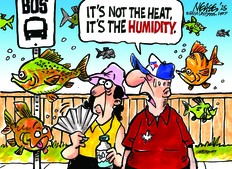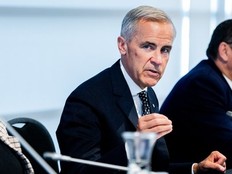BINDA: Government must end liquor tax avalanche

Article content
Some taxes are like an avalanche — they start small and slow but before you know it, they bury jobs and entire industries under mountains of costs.
Advertisement 2
Story continues below
Article content
Article content
Article content
That’s exactly the situation with Prime Minister Justin Trudeau’s automatic tax hikes on beer, wine and spirits.
The liquor tax escalator is going to raise the cost of beer, wine and spirits on April 1, just as Canada will be lurching toward an election.
Hiking voters’ beer taxes would be an interesting way to kick off the first week of a potential election campaign.
The Trudeau government created an excise tax escalator on beer, wine and spirits in 2017. It’s an automatic program where the excise tax on alcoholic beverages is hiked every year at the rate of inflation. As inflation soared, so did the tax.
And all of it happened automatically without a vote in Parliament.
Even Trudeau understands the escalator tax is unaffordable. But instead of fixing the problem by scrapping it, he put a bandage on it by capping the hike at 2%.
Article content
Advertisement 3
Story continues below
Article content
A tax cap isn’t good enough. Canadian breweries, bars and taxpayers need the tax scrapped completely.
If the federal government doesn’t scrap it, your favourite bottle of wine or six-pack of beer will become more expensive on April 1.
Automatic tax hikes are undemocratic and Canadians don’t want Trudeau to dip deeper into our pockets every year.
Taxes from all levels of government already account for about half the price you pay for beer, wine and spirits. For every beer you buy, you’re also buying one for the taxman. If you spend $20 on a six-pack of Labatt Blue, roughly $10 goes to the provincial and federal governments.
Trudeau is on his way out the door and he should take the escalator tax with him. Does the next Liberal leader really want to go door-knocking after hiking alcohol taxes on April 1?
Advertisement 4
Story continues below
Article content
As of this year’s hike, the escalator will have increased federal excise taxes on alcohol by more than 23% since 2017. While Canadians are being hit with higher taxes, Americans are seeing beer tax cuts. From 2017 to 2019, Canadian beer taxes went up by $34 million for large brewers, while American beer taxes went down by $31 million.
The current government has a chance to fix the problem because, if it doesn’t, the Opposition is promising to do the job.
“I’m against the escalator tax,” Conservative Leader Pierre Poilievre said in an interview with the Canadian Taxpayers Federation. “They’ve raised carbon taxes, payroll taxes and, if all of those taxes drive you to drink alcohol, now you’re paying more for that as well. So, when we take office, we will be cutting taxes and leaving more in people’s pockets.”
Advertisement 5
Story continues below
Article content
Regardless of your views on alcohol, or sin taxes in general, it’s wrong for the government to hike taxes without giving our elected representatives a voice on the issue. Our parliamentary democracy is a great system, but it requires our politicians to have the ability to vote on the decisions that impact Canadians.
The decision to hike taxes on alcoholic beverages doesn’t just hurt consumers who are saddled with extra costs, it also hurts restaurants, bars, breweries and vineyards that are important job creators in communities across Canada.
Recent data shows 62% of restaurants in Canada are operating at a loss or barely breaking even — up 9% since July 2023.
Restaurants going bankrupt were up 44% last year, the highest annual figure in a decade.
Cutting taxes on restaurants’ most profitable products would help those struggling businesses survive.
It’s time to scrap the escalator tax on alcohol. It’s undemocratic, makes life more expensive for Canadians and buries our breweries, restaurants and vineyards under a mountain of extra and unnecessary costs.
Carson Binda is British Columbia director for the Canadian Taxpayers Federation
Article content











Postmedia is committed to maintaining a lively but civil forum for discussion. Please keep comments relevant and respectful. Comments may take up to an hour to appear on the site. You will receive an email if there is a reply to your comment, an update to a thread you follow or if a user you follow comments. Visit our Community Guidelines for more information.